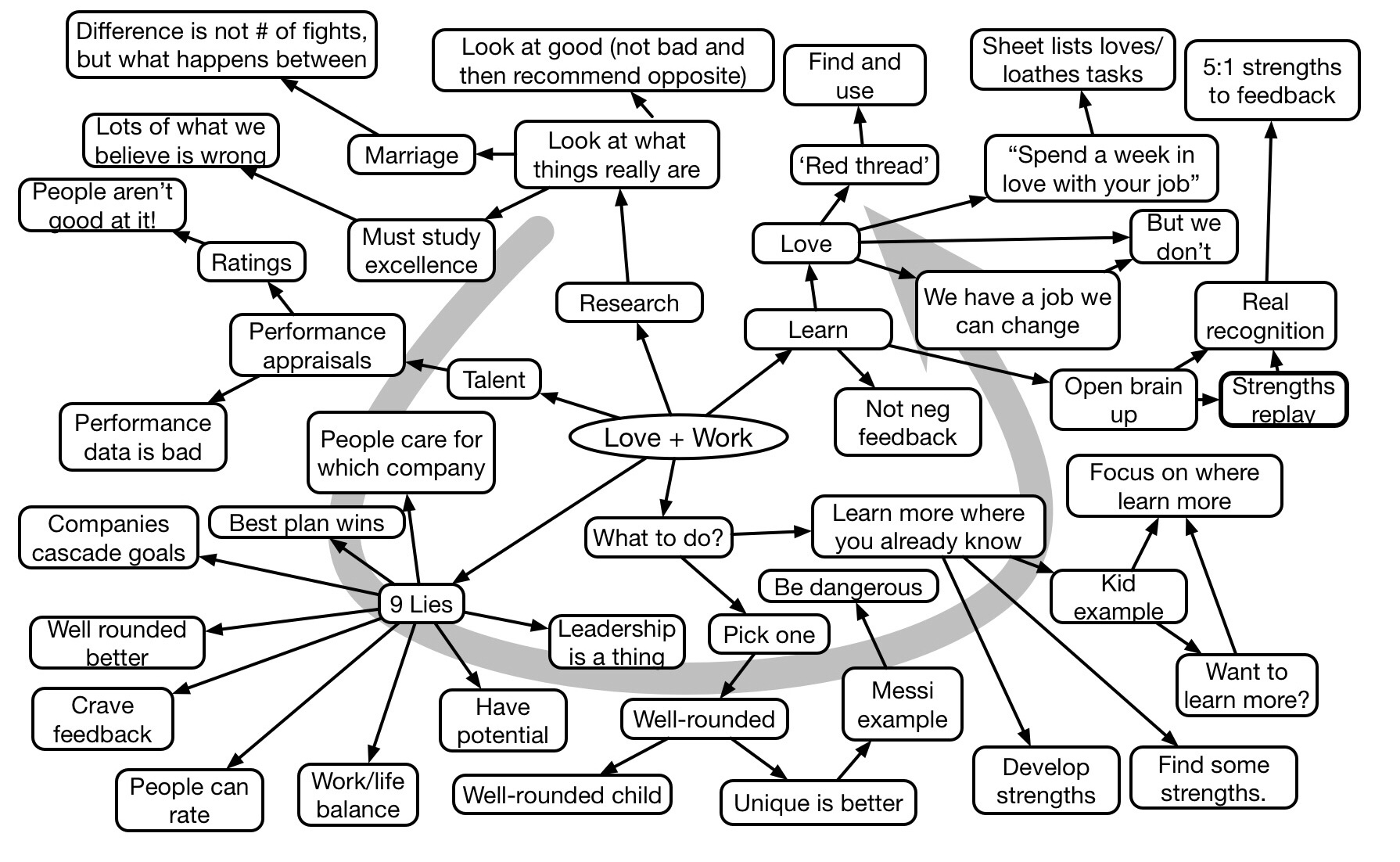In a thoughtful presentation, Sarah Lewis kicked off the second day of the Learning Solutions conference. She used compelling stories of innovations to paint a picture of mastery, failure, and grit, the elements of success.
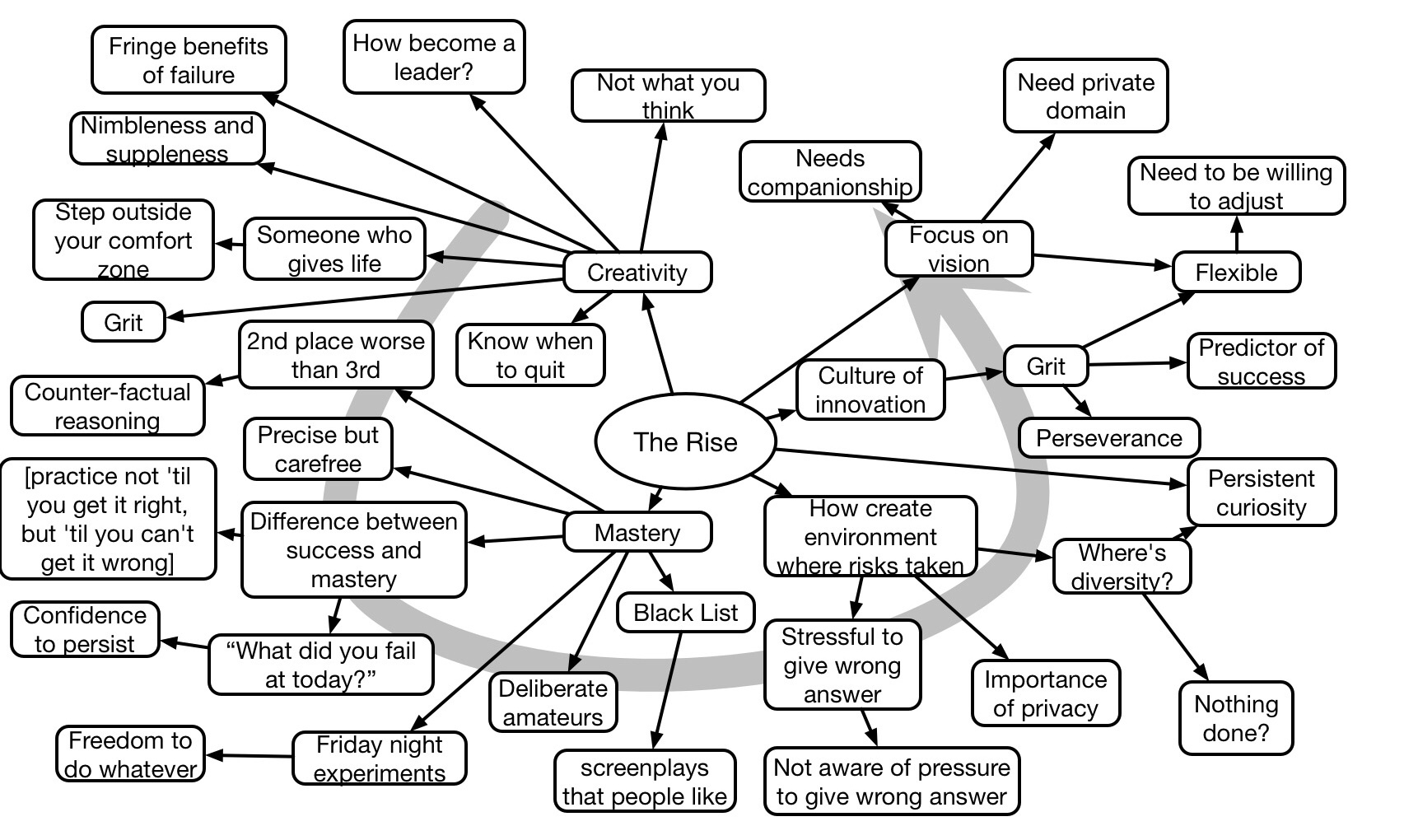
Clark Quinn’s Learnings about Learning
In a thoughtful presentation, Sarah Lewis kicked off the second day of the Learning Solutions conference. She used compelling stories of innovations to paint a picture of mastery, failure, and grit, the elements of success.

Baratunde Thurston opened this year’s Learning Solutions conference with a funny and interesting keynote talking about storytelling. Hard to capture humor in a mindmap, but his takehome was a valuable concept.
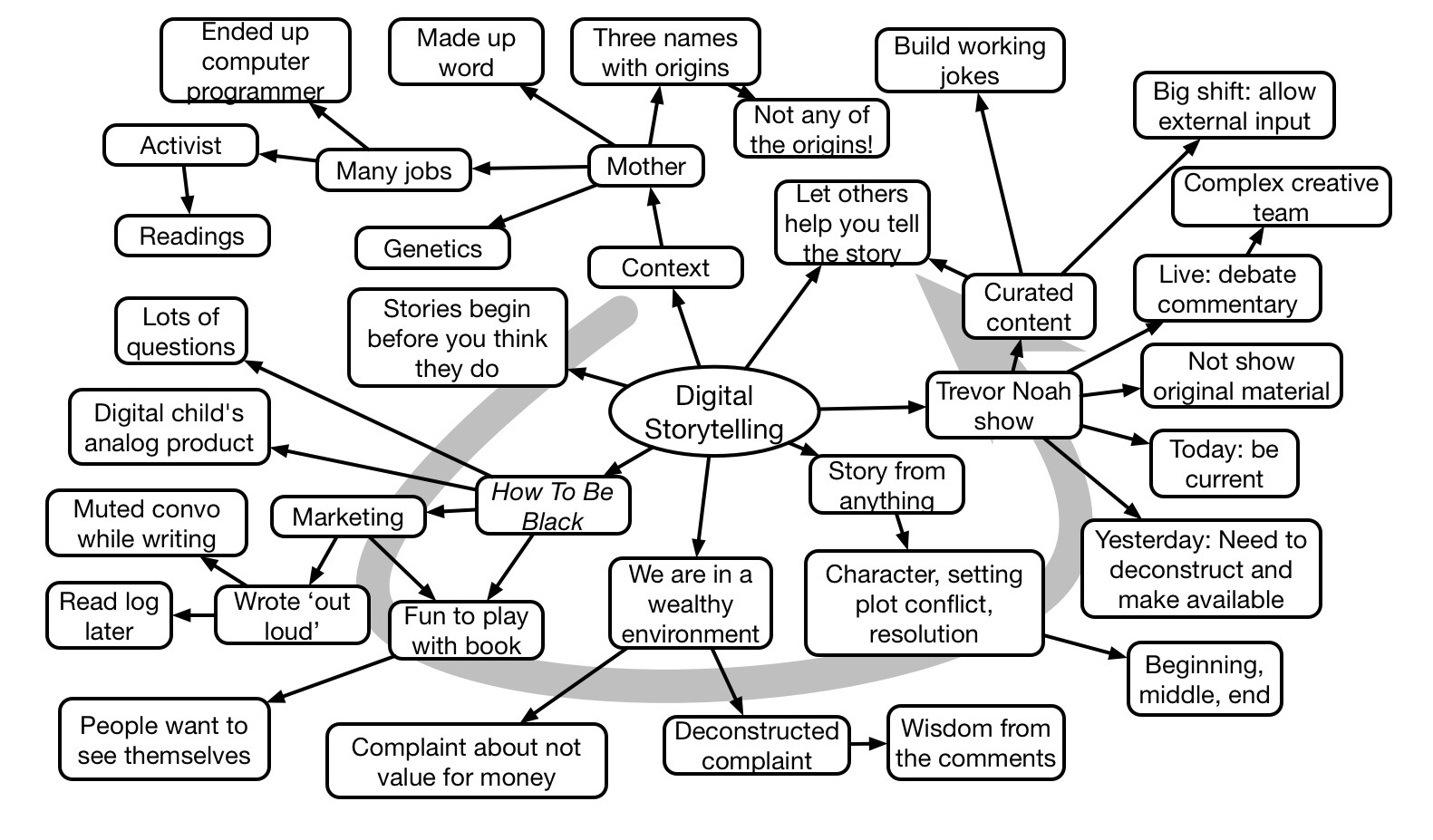
Danielle Feinberg of Pixar shared her story of using computer science to create the visual art and storytelling for Pixar movies. She illustrated the process of being creative under constraints by being ‘scrappy and clever’. She also illustrated the process with representations of intermediate stages and the stunning results from the movies. Inspiring, as hard to capture in a mindmap.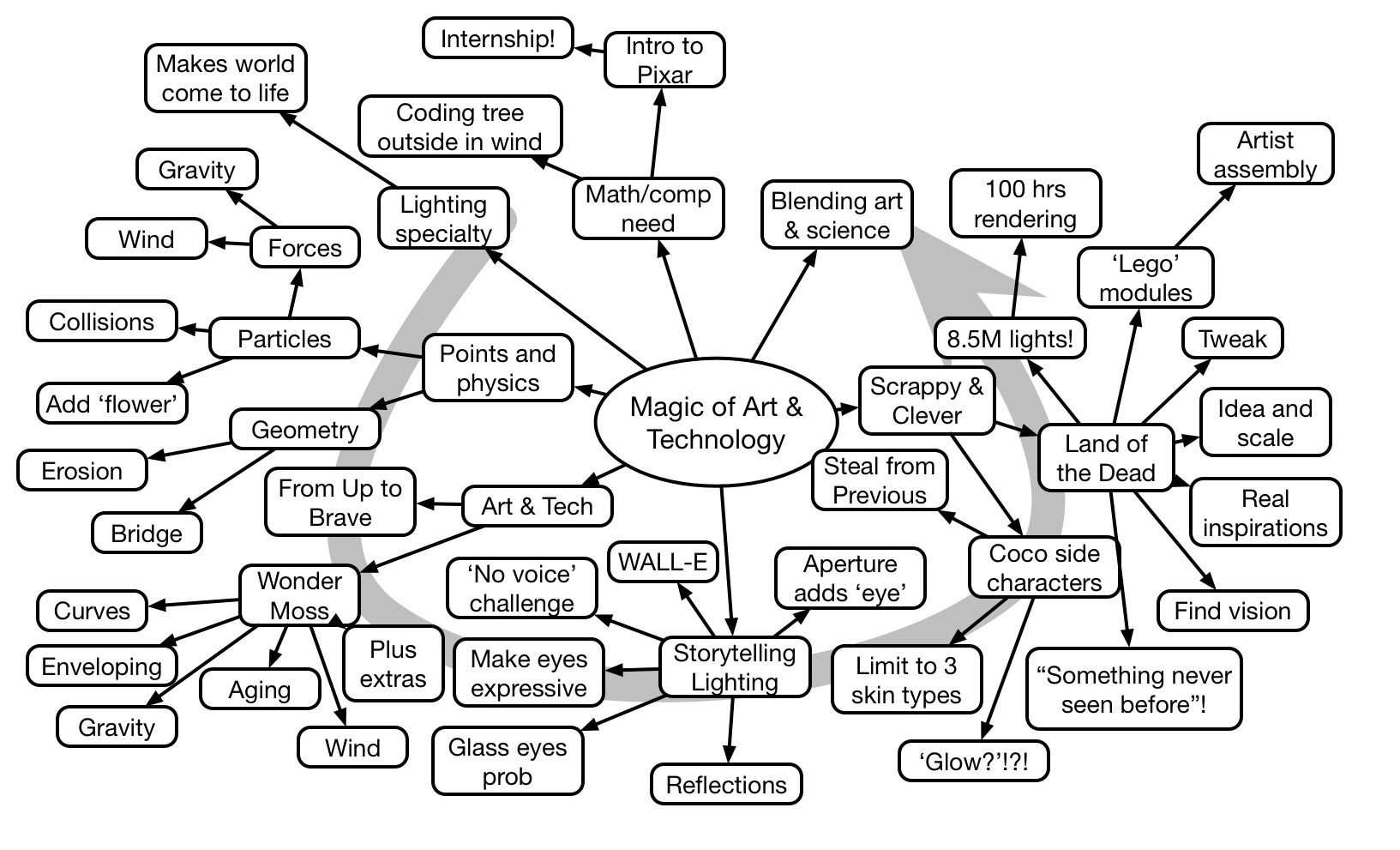
At the LearnTec conference, Jane Hart opened up the Modern Workplace Learning track with a thoughtful presentation about the rationale for MWL. She started by pointing out the changes that are driving the need. Jane identified what people are actually doing in their own learning to motivate the need for L&D change. She then characterized important elements that L&D should consider.
How would the role of a teacher change in this modern online learning world?
I see two major roles in that of the ‘teacher‘: the designer of learning experiences (pre), and the facilitator of same (during/post). I think the design changes by returning to natural learning approaches, an apprenticeship model (c.f. Cognitive Apprenticeship). Our wetware hasn‘t changed, so we want to use technology as an augment. Tech can make it easier to follow such a design paradigm.
The in-class role moves from presentation to facilitation. Ideally we have content and check, as well as any preliminary experiences, done in a ‘flipped model‘. Leveling-up learners to a baseline happens before engaging in the key learning activities. Major activities can be solo if the material is more dedicated to training, but ideally are social particularly when complex understandings are required (mostly).
The role of teacher is to check in on group discussions and projects, and bring out important lessons from the report-backs. We extend the learning with efforts to either or both of expand understandings into more contexts, or document the resulting applied understandings, to create a unified understanding.
Application-based instruction is the focus, having learners do things with the learning, not just recite it. The design role is to create a sequence of preparation, meaningful engagement, and knowledge consolidation that‘s a learning experience. The facilitation role is to help bring out misconceptions and important hints and tips to lead to learner success.
This really is true face-to-face as well, but technology offers us tools to take the drudge work out of the experience and end up having the facilitation role be focused on the most valuable aspects. That‘s my take, at any rate.
And what’s your take?
(And this may be my only post this week; happy holidays everyone!)
Jessica Kriegel closed DevLearn with a witty and wise presentation taking apart the ‘generations’ and ‘millennial’ myths. In short, it’s basically age discrimination. Don’t do it!
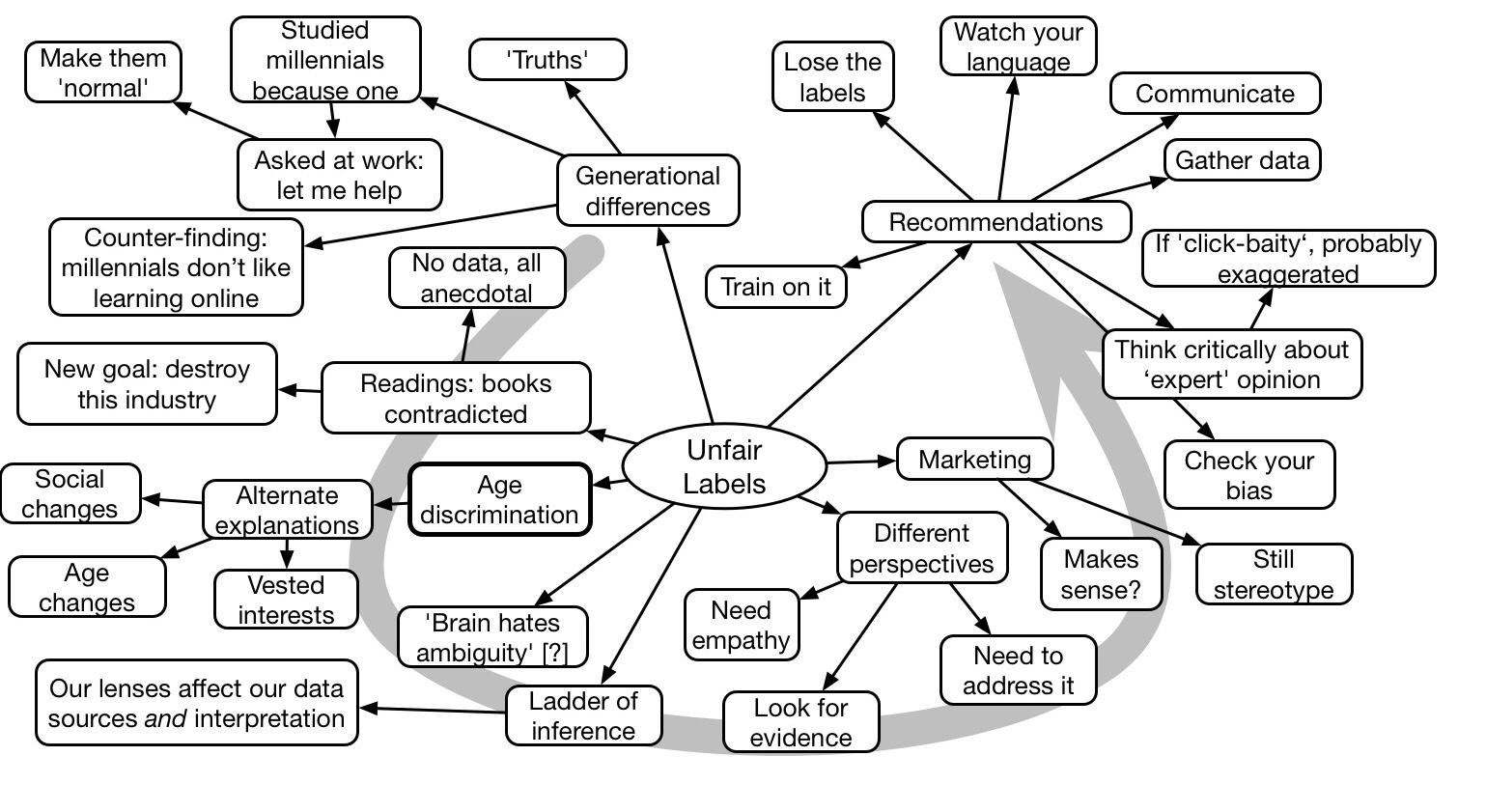
by Clark 2 Comments
At AECT18, I dropped in on a session summarizing research on emerging technologies for online learning. There were experts in each area, so names like Vanessa Dennan on social media, Curt Bonk in MOOCs, Florence Martin on synchronous Learning, and David Wiley on Open Education Research. And I apparently missed the nuances in the description, it was more meta-research, e.g. research on the research! There were some interesting insights, but I cheekily pulled more (they were offering chocolates for questions anyway).
So, in addition to all the research on research, David Wiley presented some outcome findings for OERs. Specifically, OERs are at least as good as traditional copyrighted materials. Later he gave a more complex explanation why (e.g. everyone has no reason not to have access), but this is a worthwhile finding.
I pushed further on both social media and synchronous learning for some take-homes (Curt didn’t take the bait ;).
Vanessa had talked about how the different social media platforms people use (most have more than one) create conflicts when being impacted by the learning ones. She recommended being sensitive to this, and don’t assume any specifics. She also recommended only using social media for learner-centered reasons (I’d amend: for learning-centered reasons).
Florence shared that synchronous tools shouldn’t be required in asynchronous learning environments, and only to use for optional activities. Such activities would include Q/A sessions and office hours. She, in conjunction with her student, also talked about the value of doing group work this way.
It was valuable, and I was grateful to them for organizing this session.
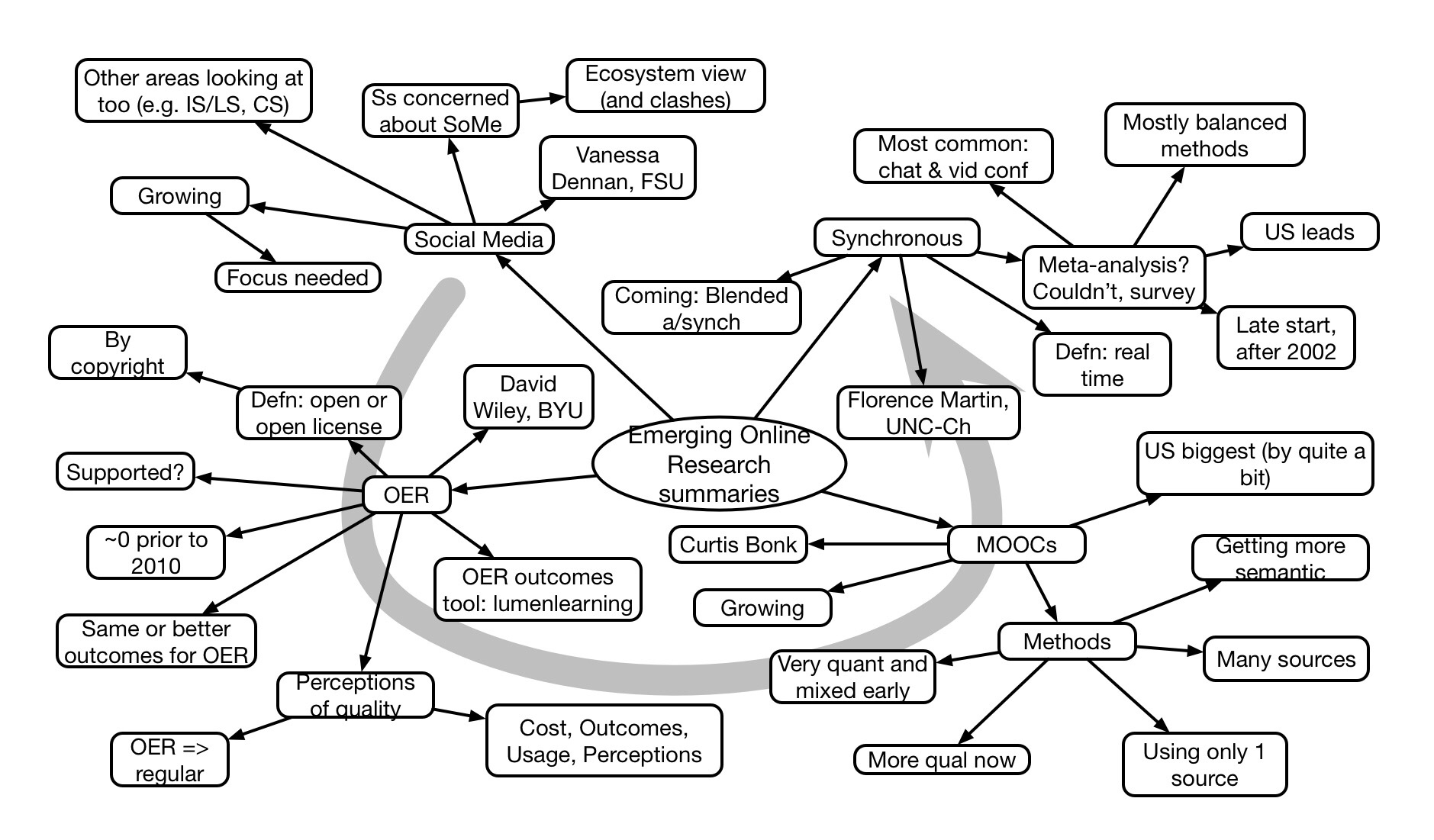
I saw another query about ‘reading list recommendations’ (e.g. as an addition to Millennials, Goldfish, Other Training Misconceptions ;), and I thought I’d weigh in, with a different spin. What qualifies what books should you read? Maybe your level of expertise? So, here is a reading list for what books should you read depending on where you are as a designer.
Note, this is a relatively personal list, and not the mainstream ID texts. It’s not Gagné, Brown & Green, Dick & Carey, or even Horton. These are books that either get you going without those, or supplement then once you are going. And they’re ones I know, and I can’t read everything!
Beginning (e.g. the accidental instructional designer):
Cammy Bean’s The Accidental Instructional Designer. Now, I think the fact that this book needs to exist is kind of an indictment of our field. Do we have accidental surgeons? Not to the extent we prepare for them! Still, it’s a reality, and Cammy’s done the field a real service in this supremely practical and accessible book.
Michael Allen’s Guide to eLearning. Michael’s got the scientific credibility, the practical experience, a commitment to making things right, and a real knack for simplifying things. This book, with it’s SAM and CCAF framework, provides a very good go-to-whoa process for designing learning experiences what will work.
Practicing Designer:
Julie Dirksen’s Design for How People Learn is a really accessible introduction to learning science, boiling it down into practical terms as a process for design. With great illustrations, it’s an easy but important read.
Donald Norman’s Design of Everyday Things is pretty much key reading for anyone who designs for people. (OK, so I’m biased, because he was my Ph.D. adviser, but I’m not the only one who says so.) Not specific to learning, but one of those rare books that is pretty much guaranteed to change the way you look at the world.
Going deeper:
Brown, Roediger, & McDaniel’s Make it Stick. 10 points from learning science about what works.
Ericsson’s Peak, a book about what makes real expertise, with a focus on the nuances of deliberate practice.
Patti Shank’s new Make it Learnable series gets into specifics on learning design. Comprehensive and yet accessible.
Ruth Clark’s eLearning & The Science of Instruction (with Dick Mayer) and/or Efficiency in Learning with Sweller & Nguyen).
Of course, there are separate topics:
Mobile: my own Designing mLearning and anything by Chad Udell (e.g. Learning Everywhere)
Games: my own Engaging Learning and anything game from Karl Kapp (e.g. the new book with Sharon Boller, Play to Learn).
Realities: Koreen Pagano’s Immersive Learning, and perhaps Kapp & O’Driscoll’s Learning in 3D as a foundation.
Performance Support: Allison Rossett’s Job Aids & Performance Support and Gottfredson & Mosher’s Innovative Performance Support.
Social: Conner & Bingham’s The New Social Learning and Jane Bozarth’s Social Media for Trainers.
Going Broader:
Informal: Jay Cross’ Informal Learning. Talking about the rest of learning besides formal.
Performance Ecosystem: Marc Rosenberg’s Beyond eLearning (the start), and/or my Revolutionize Learning & Development. About L&D strategy; going beyond just courses to meet the real needs of the org.
Going Really Deep (if you really want to geek out on learning and cognitive science):
Daniel Kahnemann’s Thinking Fast and Slow about how our brains don’t work logically. Or the behavioral economics stuff.
Andy Clark’s Being There about the newer views on cognition including situated cognition.
Of course, there’re lots more, depending on whether you’re interested in assessment, evaluation, content, or more. But this is my personal and idiosyncratic set of recommendations. There are other people I’d point you to, too, but this is the suite of books you can, and should, get your mitts on. Now, what’s on your list?
In yesterday’s post, I quipped about how L&D wasn’t doing well, and I want to clarify my perspective. Because, you see, I’m an optimist! I really only complain to create improvement. And so let me wax philosophical about why we can and should be hopeful about L&D.
 Organizations need to learn. And they learn as a function of individuals learning, alone and together. This learning can be ineffective or effective; there are skills involved. And yet, assuming these skills isn’t a safe bet.
Organizations need to learn. And they learn as a function of individuals learning, alone and together. This learning can be ineffective or effective; there are skills involved. And yet, assuming these skills isn’t a safe bet.
And this is a big picture: it’s as much about informal learning as it is formal. Or, so should it be. We need to be ensuring our formal learning is working, but learning is a continuum that extends beyond the course. Evidence shows that we learn through social interaction and through our own work experience. If we only do formal, we’re missing a large part (estimates are around 80%).
And here’s the thing: who in the organization besides L&D should be doing this? Who else understands how we learn? Ideally, of course, we do know this, but let’s make that a working assumption (if you want help here, that’s what I do ;).
So, if we take what we know about learning, individual and social, and apply that, what happens? If we share policies and practices around tools that facilitate learning (curation, creation, collaboration), what is the organizational benefit? We can be facilitating and spreading best principles to optimize and accelerate organizational knowledge.
I want to suggest that facilitating the learning of the organization, particularly in this era of increasing change and competition, is the key to organizational success. Thus, L&D has the opportunity to be not peripheral but central! And that, to me, is not only desirable, but right.
Hence, I’m optimistic. And I’ll keep pushing us to achieve the potential that’s on the table. Ready to join me?
Marcus Buckingham, in a passionate and witty presentation, skewered many beliefs from a valuable perspective. He exhorted us to look at the positive, and emphasize what we do well, and value your uniqueness.
